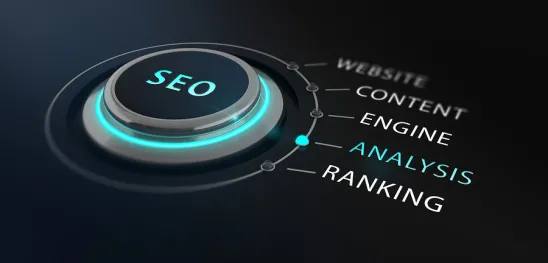Pay-Per-Click (PPC) Marketing for Law Firms
Attorneys are always looking for fast, affordable, and effective ways to generate new leads. From social media marketing to email marketing to SEO, there are many marketing methods to choose from. But which is best?
Pay-Per-Click (PPC) marketing is one method that gets very little coverage but is an effective tool for generating more leads, fast. In this guide, we’ll cover a few tips for using PPC to your advantage and growing your law firm.
What is PPC Marketing?
PPC marketing is a paid advertising method that involves targeting specific audience segments, keywords, and/or locations to reach users with display ads. As the name implies, lawyers pay for each click on their ad, and costs can scale up or down depending on their budget.
PPC advertising is one of the fastest ways to generate high-quality leads because it allows you to reach your ideal audience and attract clients almost instantaneously. This is done by displaying your ads on platforms like Google Ads, Facebook, LinkedIn, and Instagram.
Don’t Make This Mistake with Your PPC Marketing
One of the most common mistakes I see lawyers make with their PPC marketing is not taking a holistic approach to their campaigns.
It’s important to consider how other marketing platforms may bolster (or hinder) your PPC efforts. You should think about how your PPC campaigns fit into your larger marketing strategy.
As a law firm marketing strategist, I advise attorneys on how to adopt a holistic perspective in order to reach clients across a range of platforms, effectively. Typically, this involves targeting “bottom of the funnel” keywords through paid campaigns while using SEO to support a long-term acquisition strategy.
Get Started with PPC Marketing for Your Law Firm
Running PPC campaigns for your law firm doesn’t have to be intimidating. With the tips below, you’ll be a few steps closer to effective, optimized ads. Remember: PPC marketing takes practice to get your targeting, copy, and keywords exactly right. You can always consult with a PPC expert to improve your campaigns.
1. Start with a Paid Search Campaign
I always recommend attorneys start with a paid search campaign (Google Ads) because this allows you to show up in Google Search for the specific keywords your clients are searching for. After all, most potential clients use Google to find law firms in their area.
Google Ads allows you to bid on keywords based on the services you provide and the areas you serve. For example, if you are a DUI attorney in Los Angeles, some keywords in your ad set may be:
-
LA DUI attorney
-
DUI lawyer LA
-
DUI lawyer los angeles
-
Los angeles DUI away
-
LA DUI firm
The goal is to identify a clear set of terms a potential client would hypothetically use to find a law firm like yours. You can even add “negative keywords” (i.e. keywords you don’t want to target) to ensure your ads don’t show up for irrelevant terms. The more specific you are, the less likely you’ll be to waste your ad budget on the wrong queries.
Creating Your Ad Groups
Each ad group should target a specific keyword or closely related set of keywords. I recommend creating at least three unique ads per ad group. However, only include slight variations in the ad copy between each ad so you can test which ads drive the most clicks. Then, you can replicate the headlines, call to actions, or descriptions that are converting best.
2. Set Your Campaign Parameters
Google Ads offers a range of features to help you better target your ideal audience. Again, precise targeting is the key to reaching the right leads and NOT blowing your budget on the wrong terms.
Location: Setting your target location is extremely important because there’s no point in reaching users who are outside your service area. You can use the Advanced Search option to set the specific city or radius you wish to target.
Audience: Your audience is who you want your ads to reach. You can target people based on their interests and habits, what they’re searching for, demographics, and who has already interacted with your ads, website, or app.
Topics: Google Ads allows you to target certain Topics as well; How it works: “Google Ads analyzes web content and considers factors such as text, language, link structure, and page structure. It then determines the central themes of each webpage and targets ads based on your topic selections.” (Source)
Placement: You can target clients based on the websites your clients often visit/have visited. You can set chosen websites (“managed placements”) or contextual targets (“automatic placements”) to reach these users.
Display expansion for search: This feature lets Google Ads find users for you through automated bidding and smart targeting. Just be sure to keep a close eye on your campaigns to ensure Google Ads is making the best of your ads budget.
3. Add Extensions to Your Ads
Ad Extensions are features that can improve engagement and conversions on your ads. They offer additional ways for users to interact with your ads.
Here are some Extensions that may be beneficial to your campaigns:
-
Sitelinks - to direct users to a landing page, your Contact page, service pages, etc.
-
Call - Appears as a phone number on your ads; encourage users to call your contact number directly
-
Callouts - Highlight the specific benefits of users hiring you over the competition
-
Structured Snippets - List all of the legal services you offer
While optional, Ad Extensions can help influence customer engagement and purchase decisions. Most PPC experts will say they are highly important for ad performance and visibility. Therefore, I encourage you to use them in your PPC ads.
4. Write Compelling Ad Copy
No amount of targeting will make up for having poor ad copy. Your ad copy is ultimately what convinces users to click on your ads. Don’t forget these important areas on your ads:
Headline 1 (30 character limit): This is the first headline that’s displayed on your ad. This is where you should write copy that grabs the user’s attention right away. I typically encourage lawyers to use their target keyword (relative to the ad group you’re targeting) here. Example: LA’s Top DUI Attorneys
Headline 2 (30 character limit): This is the second headline in your ad. I often recommend including a call to action here to encourage users to take action on your ad. Examples: Schedule Free Consultation, Call Us Now, or Chat with an Attorney
Final URL: This is the URL the user will land on after they click your ad. I recommend setting up a landing page that directly relates to your ad. You don’t want the user to land on content that’s irrelevant to the search term or service they were looking for.
Description (90 character limit): This is where you briefly describe your service. Incorporate the benefits you offer, the clients you serve, and include a call to action for users to contact you. Again, be sure to incorporate the target keyword you are targeting in your ad group.
5. Optimize Your Landing Page
When it comes to PPC marketing, you want to consider the path a user might take from Google Search to your ad to their final destination on your website. The campaign path should be consistent so the landing page matches the expectations the user had when searching for that keyword.
For example, if the target keyword is “Denver family lawyer” and the call to action is “Schedule a Consultation”, the user might reasonably expect to land on a Family Law Services page with a callout to Schedule a Consultation. They would not, however, expect to be directed to your homepage with no call to action or to a general Services page with a callout to “Email Us Now”.
Your landing page should match the service a user is searching for and the next action you want the user to take should be obvious. Make it easier for users to find the information they are looking for and contact you ASAP.
You might decide to set your PPC landing pages to “noindex” so they aren’t displayed organically in Search, only for your paid campaigns. That way, you can easily A/B test the effectiveness of your landing pages without them competing with each other (or with your existing Service pages) in the organic search results.
Working with a PPC Marketing Expert
There are many ways to optimize your ads so you are getting the best results for your ad spend. This takes time, and it’s common to make mistakes along the way. Eventually you may decide that working with a trusted PPC expert is the way to go.
PPC experts have more experience with ad targeting, creating optimal keyword sets, writing ad copy, and A/B testing for the best results. You may find that working with a specialist saves you money versus spending out your budget on the wrong keywords or parameters.
Reach out to your network to find recommendations for reliable ad specialists. Be realistic about your budget and the results you hope to see with your ads. And, most importantly, work with a specialist who is able to look holistically at how PPC fits in with your larger marketing strategy.




 />i
/>i

